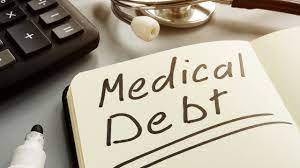Understanding the Impact of Medical Debt on Your Financial Health
Medical debt is one of the most common and devastating financial challenges faced by individuals and families worldwide. Unexpected medical bills can quickly accumulate, catching many unprepared and leading to a significant decline in credit scores. Even when medical emergencies are beyond one’s control, the financial repercussions can be severe and long-lasting. In this comprehensive article, Legal Marketplace CONSULTANT aims to guide you through the crucial steps of rebuilding your finances and credit after incurring medical debt. We will cover what medical debt is, how it affects your credit, ways to verify and dispute medical bills, methods to negotiate payment plans, and strategies for gradual recovery of your financial reputation.
What is Medical Debt and How Does it Affect You?
Medical debt refers to the money owed by patients to healthcare providers for medical services rendered. This includes hospital stays, surgeries, diagnostic tests, prescription medications, and other health-related expenses. Unfortunately, medical debt can tower into thousands of dollars, especially in cases of emergency treatments or chronic illnesses, making it difficult for individuals to manage.
When medical bills remain unpaid, healthcare providers often send the debt to collection agencies. These collections can then be reported to credit bureaus, significantly lowering your credit score. A lower credit score affects your ability to secure loans, mortgages, credit cards, or even favorable insurance rates. Consequently, medical debt is a leading cause of financial distress and bankruptcy in many countries.
Step 1: Reviewing Medical Bills for Accuracy
Before making any payment, it is essential to meticulously review your medical bills for errors. Mistakes in medical billing are surprisingly common and can include incorrect charges, duplicate billing, or services never rendered. Taking the time to verify each item can save you from paying more than you owe.
Here are some tips to effectively review your medical bills:
- Request a detailed itemized bill from your healthcare provider.
- Compare the bill against your insurance Explanation of Benefits (EOB) to identify discrepancies.
- Contact your healthcare provider’s billing department promptly to clarify any confusing charges.
- Seek assistance from medical billing advocates if necessary, who specialize in identifying errors on medical bills.
Step 2: Disputing Outdated or Incorrect Credit Reports
Medical debt may show up on your credit report, often negatively impacting your credit score. However, not all debt information is accurate or current. Sometimes, debts already paid or settled remain listed, or old debts that should have been removed after seven years still appear.
To protect your credit record, you should regularly check your credit reports from the three major credit bureaus: Equifax, Experian, and TransUnion. If you find outdated or wrong entries related to medical debt, take the following actions:
- Gather all documentation proving payment or settlement of the debt.
- File a dispute with the credit bureau(s) reporting the incorrect information.
- Follow up until the correction or removal of the inaccurate entry is confirmed.
- Consider consulting a legal professional if disputes are unsuccessful or if you face unfair credit reporting practices.
Step 3: Setting Up Payment Plans to Manage Medical Debt
Direct communication with healthcare providers or collection agencies can open the door to manageable payment plans. Many providers understand the burden of medical debt and are willing to negotiate terms that fit your financial situation. Establishing a feasible payment plan assists in gradually paying off debt without overwhelming your monthly budget.
Key suggestions when setting up payment plans include:
- Request a written agreement detailing the payment terms to avoid misunderstandings.
- Ensure monthly payments are affordable and realistic in your current financial context.
- Ask if interest or fees will be waived or reduced under the plan.
- Make payments on time to build positive payment history and improve creditworthiness.
Step 4: Understanding Gradual Credit Recovery
Even with medical debt, your credit record can be rehabilitated through persistent effort and responsible financial behavior. Paying medical debt gradually, as per agreed plans, sends positive signals to lenders about your commitment and reliability. Over time, this can help restore your credit profile.
Additional actions for rebuilding credit include:
- Keeping other credit accounts current and avoiding new unnecessary debt.
- Monitoring credit reports frequently for progress and any new negative information.
- Utilizing secured credit cards or credit-builder loans as tools to enhance credit history.
- Seeking advice from financial counselors or legal experts knowledgeable about credit refurbishment after medical debt.
Step 5: Legal Assistance and Rights in Medical Debt Situations
Understanding your legal rights when confronted with medical debt is crucial. Many jurisdictions have laws regulating how medical debt can be collected, reported, and enforced. Consumers are often entitled to protections that prevent unfair collection practices or incorrect credit reporting.
If you feel overwhelmed by medical debt collection or credit issues, consulting with legal professionals specialized in finance law can greatly benefit you. They can review your case, identify violations, negotiate with creditors, and even represent you in court if necessary.
Legal Marketplace CONSULTANT offers access to trusted attorneys who can provide tailored support for your medical debt challenges. Reach out through the contact information in our bio or send a private message for confidential consultation.
Additional Tips for Preventing Medical Debt Problems
While unexpected medical bills can arise suddenly, you can take proactive steps to minimize the risk of incurring unmanageable debt in the future. Consider the following recommendations:
- Always verify your insurance coverage and understand what medical services are included.
- Request cost estimates from healthcare providers before elective procedures.
- Maintain an emergency savings fund dedicated to healthcare expenses.
- Stay informed about medical billing codes and your rights as a healthcare consumer.
- Utilize hospital financial assistance programs when eligible.
Medical debt can be an intimidating obstacle to your financial stability, but it does not have to define your credit future. Through careful review of bills, disputing inaccuracies, negotiating payment plans, and consistent payments, you can gradually rebuild your credit reputation. Persistence, documentation, and knowledge of your rights are key to successful financial recovery.
If you require expert legal assistance, Legal Marketplace CONSULTANT is here to provide the guidance and support you need. Contact us via the communication channels provided in our bio or reach out through private messaging for confidential and professional help.
Legal Marketplace CONSULTANT is a company specializing in comprehensive legal support for individuals and businesses, focusing on finance law and credit rehabilitation strategies following medical debt. Our expertise includes working with attorneys, legal consultants, financial advisors, auditors, and accountants to deliver complete legal solutions.































